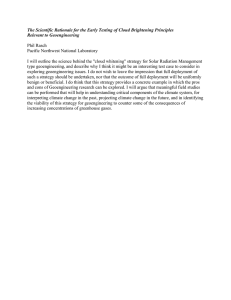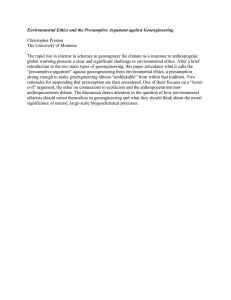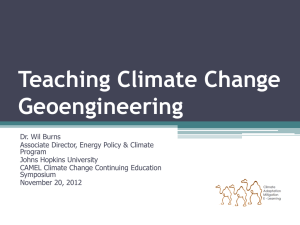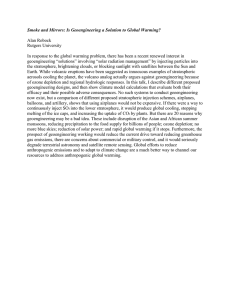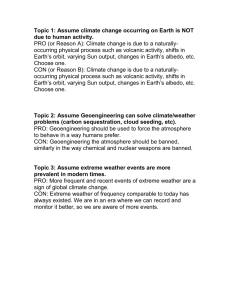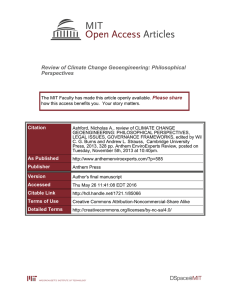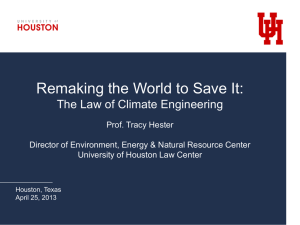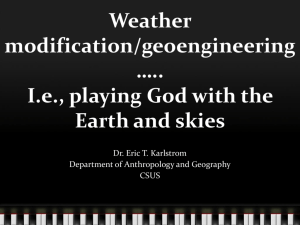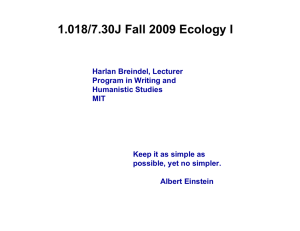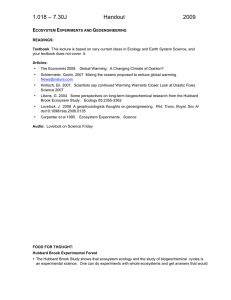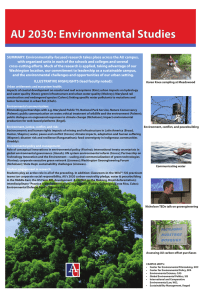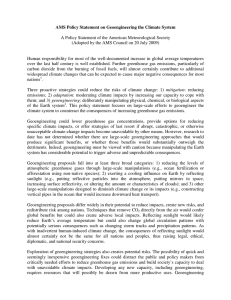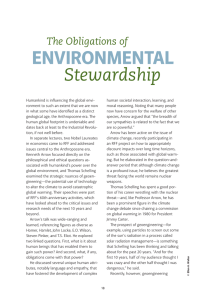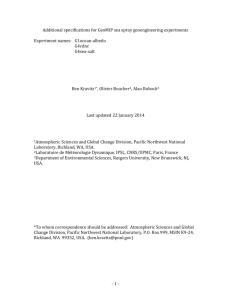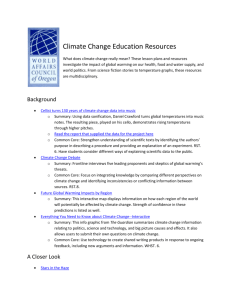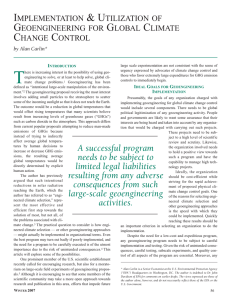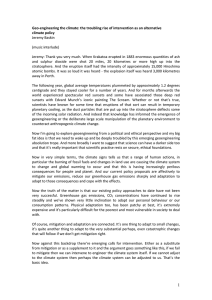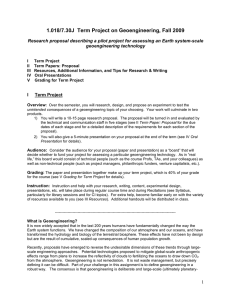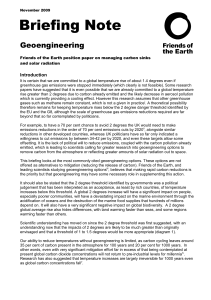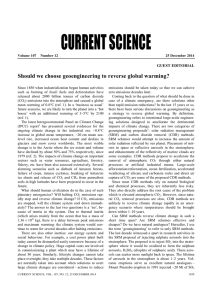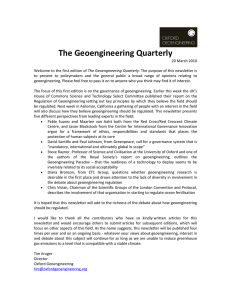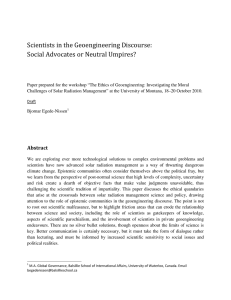Geoengineering, Scientific Responsibility and Public Trust Wendy Parker Ohio University
advertisement
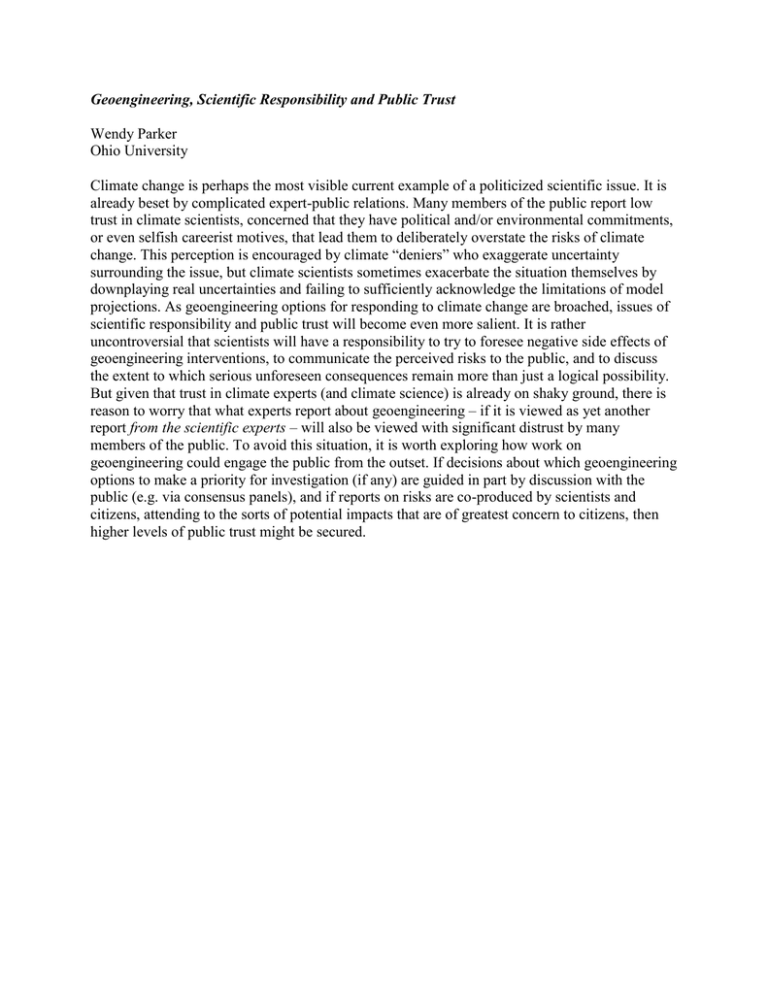
Geoengineering, Scientific Responsibility and Public Trust Wendy Parker Ohio University Climate change is perhaps the most visible current example of a politicized scientific issue. It is already beset by complicated expert-public relations. Many members of the public report low trust in climate scientists, concerned that they have political and/or environmental commitments, or even selfish careerist motives, that lead them to deliberately overstate the risks of climate change. This perception is encouraged by climate “deniers” who exaggerate uncertainty surrounding the issue, but climate scientists sometimes exacerbate the situation themselves by downplaying real uncertainties and failing to sufficiently acknowledge the limitations of model projections. As geoengineering options for responding to climate change are broached, issues of scientific responsibility and public trust will become even more salient. It is rather uncontroversial that scientists will have a responsibility to try to foresee negative side effects of geoengineering interventions, to communicate the perceived risks to the public, and to discuss the extent to which serious unforeseen consequences remain more than just a logical possibility. But given that trust in climate experts (and climate science) is already on shaky ground, there is reason to worry that what experts report about geoengineering – if it is viewed as yet another report from the scientific experts – will also be viewed with significant distrust by many members of the public. To avoid this situation, it is worth exploring how work on geoengineering could engage the public from the outset. If decisions about which geoengineering options to make a priority for investigation (if any) are guided in part by discussion with the public (e.g. via consensus panels), and if reports on risks are co-produced by scientists and citizens, attending to the sorts of potential impacts that are of greatest concern to citizens, then higher levels of public trust might be secured.
